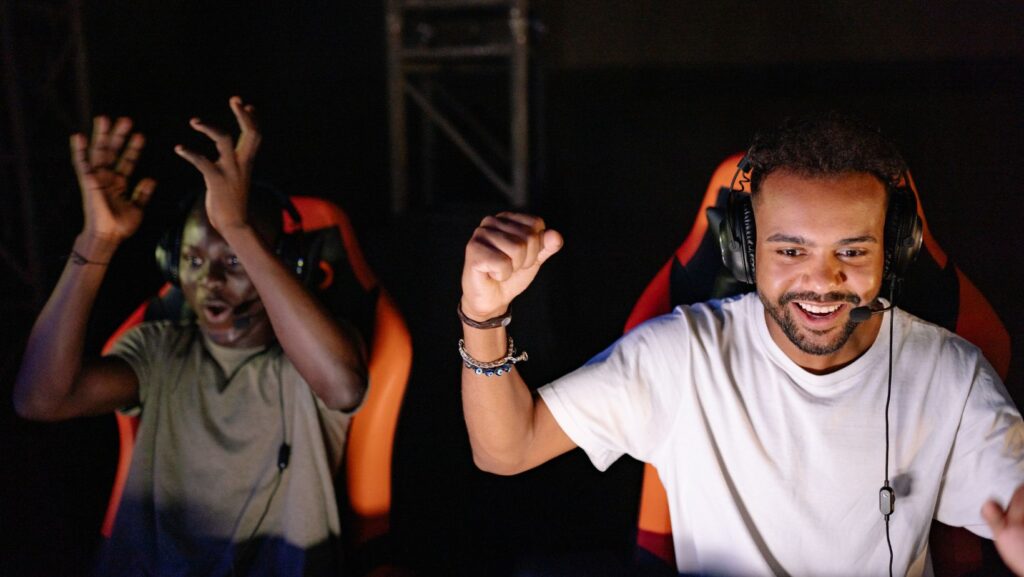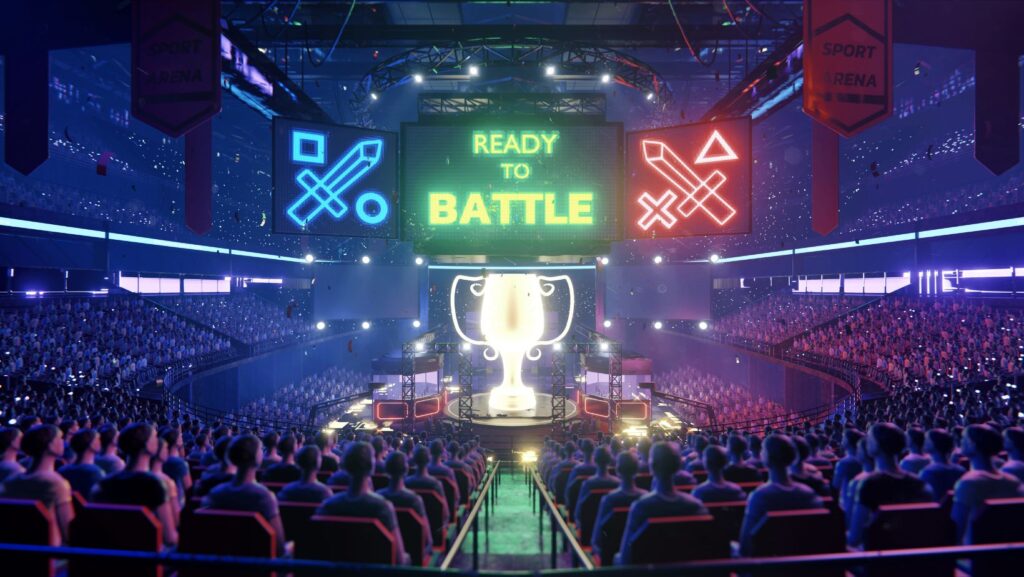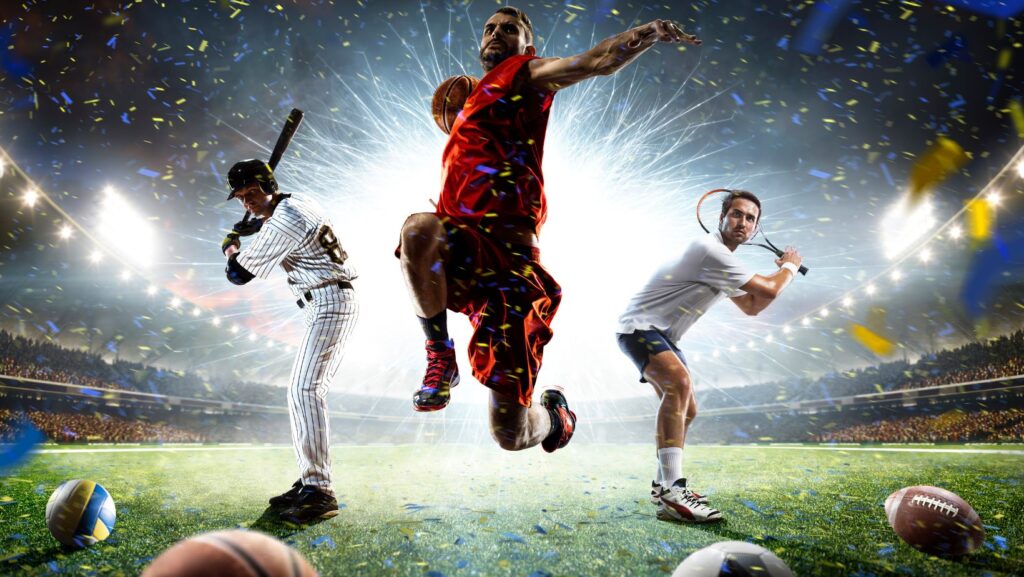 In recent years, the rise of eSports has sparked a heated debate: can competitive video gaming be considered a legitimate sport? With millions of fans, lucrative sponsorships, and professional leagues, eSports has undeniably carved out a significant niche in the entertainment industry. However, traditional sports enthusiasts often argue that physical exertion is a key component missing from eSports. While eSports athletes may not be running laps or lifting weights, they undergo rigorous training, exhibit exceptional hand-eye coordination, and possess strategic thinking akin to chess grandmasters. The growing recognition from major sports organizations and the inclusion of eSports in events like the Asian Games further blur the lines between digital and traditional sports. As the eSports phenomenon continues to grow, it’s worth examining whether this new form of competition deserves a place in the pantheon of sports.
In recent years, the rise of eSports has sparked a heated debate: can competitive video gaming be considered a legitimate sport? With millions of fans, lucrative sponsorships, and professional leagues, eSports has undeniably carved out a significant niche in the entertainment industry. However, traditional sports enthusiasts often argue that physical exertion is a key component missing from eSports. While eSports athletes may not be running laps or lifting weights, they undergo rigorous training, exhibit exceptional hand-eye coordination, and possess strategic thinking akin to chess grandmasters. The growing recognition from major sports organizations and the inclusion of eSports in events like the Asian Games further blur the lines between digital and traditional sports. As the eSports phenomenon continues to grow, it’s worth examining whether this new form of competition deserves a place in the pantheon of sports.
Is E Sports A Sport
The Rise of Competitive Gaming
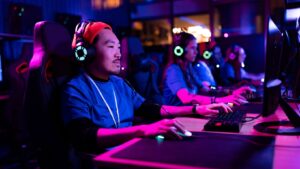 Competitive gaming, or eSports, has seen exponential growth over the past decade. Major tournaments like The International, League of Legends World Championship, and Fortnite World Cup attract millions of viewers worldwide. According to Newzoo, the global eSports audience was estimated to reach 495 million in 2020. Prize pools now exceed tens of millions of dollars, with the Dota 2 International 2021 prize pool being over $40 million. Professional teams operate similarly to traditional sports teams. They have coaches, analysts, and support staff dedicated to improving player performance. These teams train intensively, often 8-12 hours a day, to master game mechanics and team strategies.
Competitive gaming, or eSports, has seen exponential growth over the past decade. Major tournaments like The International, League of Legends World Championship, and Fortnite World Cup attract millions of viewers worldwide. According to Newzoo, the global eSports audience was estimated to reach 495 million in 2020. Prize pools now exceed tens of millions of dollars, with the Dota 2 International 2021 prize pool being over $40 million. Professional teams operate similarly to traditional sports teams. They have coaches, analysts, and support staff dedicated to improving player performance. These teams train intensively, often 8-12 hours a day, to master game mechanics and team strategies.
Elements of Esports
Several factors make eSports competitive and skill-based, similar to traditional sports.
- Training Regimens: Players follow rigorous training schedules, focusing on mechanical skills, game sense, and teamwork. For example, top-level League of Legends players practice mechanical skills daily.
- Physical and Mental Skills: eSports require exceptional hand-eye coordination, reaction times, and strategic thinking. Studies show that the reaction times of professional gamers are often faster than those of traditional athletes.
- Strategic Depth: Games like StarCraft II necessitate high-level strategic planning and adaptability. Professional players must constantly adapt to opponents’ strategies, much like a chess grandmasters.
- Recognition and Validation: The inclusion of eSports in the Asian Games and recognition by sports organizations like the IOC blur the lines between traditional sports and eSports. This inclusion signifies a shift towards broader acceptance within the global sports community.
| Year | Event | Prize Pool |
| 2021 | Dota 2 International | Over $40 million |
| 2019 | Fortnite World Cup | $30 million |
| 2020 | League of Legends World Championship | $2.34 million |
Thus, the competitive structure and skills in eSports show multiple parallels to traditional sports, challenging the notion that physical exertion is the sole criterion for defining a sport.
Comparing Esports to Traditional Sports
Physical and Mental Skills
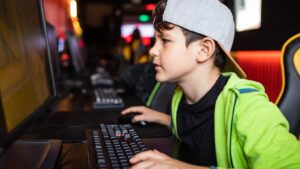 Esports players require exceptional hand-eye coordination, rapid reflexes, and precise motor skills. Professional gamers demonstrate these physical abilities through intense gameplay, which necessitates quick decision-making and reaction times often measured in milliseconds. In traditional sports, athletes display physical prowess through endurance, strength, and agility. Both domains demand rigorous training schedules to improve performance. Mental skills are critical in both esports and traditional sports. Gamers need strategic thinking, situational awareness, and the ability to adapt to opponents’ tactics. Similar mental faculties are essential in traditional sports, where athletes analyze competitors and adjust strategies in real-time. Cognitive endurance plays a crucial role, as sustained focus can determine the outcome of matches in both fields.
Esports players require exceptional hand-eye coordination, rapid reflexes, and precise motor skills. Professional gamers demonstrate these physical abilities through intense gameplay, which necessitates quick decision-making and reaction times often measured in milliseconds. In traditional sports, athletes display physical prowess through endurance, strength, and agility. Both domains demand rigorous training schedules to improve performance. Mental skills are critical in both esports and traditional sports. Gamers need strategic thinking, situational awareness, and the ability to adapt to opponents’ tactics. Similar mental faculties are essential in traditional sports, where athletes analyze competitors and adjust strategies in real-time. Cognitive endurance plays a crucial role, as sustained focus can determine the outcome of matches in both fields.
Regulatory Frameworks and Governance
Esports operates under structured regulatory frameworks similar to traditional sports. Organizations like ESL and Riot Games enforce rules, oversee fair play, and manage competitions. These bodies ensure integrity, resolve disputes, and establish codes of conduct for participants and teams. This governance mirrors traditional sports associations like FIFA or the NBA, which set standards for player behavior and competition formats. Governance in both esports and traditional sports involves anti-doping measures to prevent performance-enhancing drug use. Esports organizations collaborate with entities like the Esports Integrity Commission (ESIC) to combat cheating and ensure a level playing field. Traditional sports follow strict anti-doping rules enforced by agencies such as WADA. Both sectors emphasize the importance of ethical behavior, player welfare, and fair competition standards.

